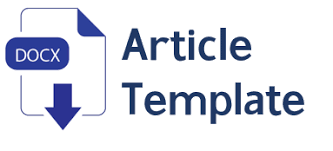Sistem Akuntansi Manajemen dan Pengambilan Keputusan UMKM: Review Literatur terhadap Efektivitas dan Kesiapan Digital
DOI:
https://doi.org/10.59086/jam.v3i3.769Keywords:
SAM, Pengambilan Keputusan, UMKM, Efektivitas, Kesiapan DigitalAbstract
This study aims to examine the effectiveness of Management Accounting Systems (MAS) in supporting decision-making within Micro, Small, and Medium Enterprises (MSMEs), while also analyzing the digital readiness required for its implementation in the era of technological transformation. A qualitative Systematic Literature Review (SLR) method was employed, drawing from reputable academic databases such as Scopus, ScienceDirect, and Google Scholar, covering the period from 2015 to 2025. The findings reveal that digital MAS enhances operational efficiency, data accuracy, and real-time reporting, yet implementation remains challenged by limited digital literacy, high adoption costs, and resistance to change. Digital readiness among MSMEs is strongly influenced by technological infrastructure availability, human resource competence, financial capacity, and an organizational culture that embraces innovation. This study contributes theoretically by offering a framework of digital readiness for MSMEs and provides practical implications for policymakers, MSME actors, and future researchers to promote inclusive and sustainable digital accounting transformation.
Downloads
References
Abdullahi, Y. Z., Mansor, N., & Nuhu, M. (2021). Challenges in the adoption of accounting information systems by SMEs in developing countries: A systematic review. Asian Journal of Accounting Perspectives, 14(2), 45–60. https://doi.org/10.22452/ajap.vol14no2.3
Abor, J. Y., & Quartey, P. (2019). Issues in SME development in Ghana and South Africa. International Research Journal of Finance and Economics, 39(1), 215–228.
Accenture. (2021). Digital transformation in SMEs: Challenges and opportunities. https://www.accenture.com
Ahmad, K. (2012). The use of management accounting practices in Malaysian SMEs. Asian Journal of Business and Accounting, 5(1), 113–133.
Al-Htaybat, K., von Alberti-Alhtaybat, L., & Hutaibat, K. (2018). New technologies: Opportunities for accounting practice and education. Journal of Enterprise Information Management, 31(1), 153–170. https://doi.org/10.1108/JEIM-02-2017-0020
Anthony, R. N., & Govindarajan, V. (2007). Management control systems (12th ed.). McGraw-Hill.
Bank Dunia. (2023). Digital readiness of SMEs in emerging economies. World Bank Group.
Brigham, E. F., & Ehrhardt, M. C. (2020). Financial management: Theory & practice (16th ed.). Cengage Learning.
Deloitte. (2023). The impact of cloud accounting on SMEs. https://www2.deloitte.com
Drury, C. (2018). Management and cost accounting (10th ed.). Cengage Learning.
Dyt, R., & Halabi, A. K. (2017). Empirical evidence on the relationship between SME owner characteristics and accounting systems. Journal of Small Business Management, 55(3), 469–488.
Garengo, P., & Bititci, U. (2021). Towards a contingency theory of performance measurement in SMEs. International Journal of Operations & Production Management, 41(8), 1251–1286.
Garrison, R. H., Noreen, E. W., & Brewer, P. C. (2018). Managerial accounting (16th ed.). McGraw-Hill.
Grand View Research. (2023). Accounting software market size report. https://www.grandviewresearch.com
Hansen, D. R., & Mowen, M. M. (2017). Cost management: Accounting and control (8th ed.). Cengage Learning.
Horngren, C. T., Sundem, G. L., Stratton, W. O., Burgstahler, D., & Schatzberg, J. (2015). Introduction to management accounting (16th ed.). Pearson.
Julita. (2023). Penerapan financial technology dan peningkatan literasi keuangan bagi industri mikro kecil (IMK). Maneggio: Jurnal Ilmiah Magister Manajemen, 6(2).
Lavia López, O., & Hiebl, M. R. W. (2015). Management accounting in SMEs: A systematic literature review. Journal of Small Business Management, 53(2), 443–475.
McKinsey & Company. (2022). Digital transformation in Southeast Asian SMEs. https://www.mckinsey.com
Mujiatun, S., & Manullang, S. M. (2024). Strategi promosi pedagang UMKM untuk meningkatkan pendapatan di masa pandemi COVID 19 (Studi kasus UMKM lingkungan Universitas Muhammadiyah). Prosiding Seminar Nasional Kewirausahaan
Nainggolan, E. P. (2023). Peran Mediasi Inklusi Keuangan pada Literasi Keuangan dan Kinerja UMKM di Kabupaten Deli Serdang. Balance: Jurnal Akuntansi dan Manajemen, 2(1), 10–21
Nainggolan, E. P. (2023). Analisis Kinerja Pegawai dalam Penggunaan Sistem Informasi Akuntansi Manajemen dan Disiplin Kerja. Balance: Jurnal Akuntansi dan Manajemen, 2(3), 130–138.
Nandan, R. (2010). Management accounting needs of SMEs and the role of professional accountants: A renewed research agenda. Journal of Applied Management Accounting Research, 8(1), 65–78.
OECD. (2023). Digitalisation and SMEs in developing economies. OECD Publishing.
PwC. (2022). Cloud accounting adoption trends among SMEs. https://www.pwc.com
Quinn, M. (2014). Stability and change in management accounting over time—A century or so of evidence from Guinness. Management Accounting Research, 25(1), 76–92. https://doi.org/10.1016/j.mar.2013.07.005
Rogers, E. M. (2003). Diffusion of innovations (5th ed.). Free Press.
Romney, M. B., & Steinbart, P. J. (2021). Accounting information systems (15th ed.). Pearson.
Sandino, T. (2020). The role of management accounting in small business survival. Journal of Accounting Research, 58(3), 785–822.
Sian, S., & Roberts, C. (2009). UK small owner-managed businesses: Accounting and financial reporting needs. Journal of Small Business and Enterprise Development, 16(2), 289–305. https://doi.org/10.1108/14626000910956002
Susanto, A. (2019). Sistem informasi akuntansi: Struktur pengendalian risiko pengembangan. Lingga Jaya.
Tornatzky, L. G., & Fleischer, M. (2020). The processes of technological innovation. Lexington Books.
Warren, C. S., Reeve, J. M., & Duchac, J. (2022). Financial & managerial accounting (16th ed.). Cengage Learning.
Wijewardena, H., & De Zoysa, A. (2019). Comparative analysis of management accounting practices in Australian and Japanese SMEs. Small Enterprise Research, 26(1), 36–52.
Zafar, A., Mustafa, K., & Iqbal, J. (2022). Digital transformation and SMEs: A review and research agenda. Journal of Small Business and Enterprise Development, 29(4), 623–641. https://doi.org/10.1108/JSBED-06-2021-0246
Downloads
Published
How to Cite
Issue
Section
License

This work is licensed under a Creative Commons Attribution 4.0 International License.
This is an open-access journal. All works are published under the Creative Commons license CC-BY which means that all content is freely available at no charge to the user or his/her Institution. Users are allowed to read, download, copy, write, improve, and create derivative creation even for other lawful purposes, this license permits anyone to, as long as they cite and license the derivative creation under similar terms

This work is licensed under a Creative Commons Attribution 4.0 International License.


















